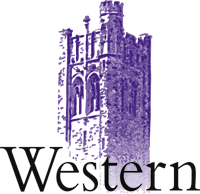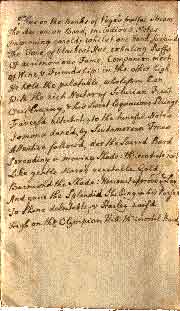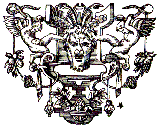

|
English 234E: Restoration and Eighteenth-Century Literature
Web Resources
|

|
|
Table of Contents General Eighteenth-Century Sites Eighteenth-Century Prints and Visual Materials
Introduction What follows is a very select list of web sites devoted to, or containing materials relevant for, the study of eighteenth-century literature. Most of these include, in turn, links to other web sites not included in this list.
The Web is, of course, a valuable information resource, and one that is becoming more useful almost daily with the addition of new materials. At the same time, students should remember that there are dangers associated with relying upon the Web for their research. Most of what can be found on the Web has not been refereed; this is to say that it has not be "vetted" by anyone for accuracy, intelligence, credibility, etc. before online publication. Much of what you may find is likely to have been produced by qualified and careful scholars; much else, however, will not have been.
The sites listed below are those that are generally the most reliable, useful, and relevant. However, due to the nature of the Web, and the constantly changing contents and links of these sites, inclusion below is not a guarantee of quality or reliability. Note: Ultimately, the student is responsible for the quality of the material cited in an essay or seminar, regardless of its origin.
Evaluating Web Resources As will be evident from the comments above, some caution is advisable when employing materials to be found on the Web. A vital first step is evaluating the Web site. This can best be achieved by determining the answers to some fairly rudimentary questions:
Sites that provide no answers to the first two of these questions should be treated as somewhat suspect for this very reason. As a general rule, those sites that are most open and forthcoming with the answers to these and similar questions are most likely to be reliable. Jan Alexander and Marsha Ann Tate maintain a Web page, run through the Wolfgram Memorial Library at Widener University (Chester, Pennsylvania), and entitled Evaluating Web Resources; it provides a useful checklist for evaluating a variety of different kinds of Web site, including "Informational" ones of the sort most likely to be of use to students:
http://www2.widener.edu/Wolfgram-Memorial-Library/webevaluation/inform.htm
The same authors have also produced a full-length printed guide to the subject, which is available at Western:
In conclusion, remember that it is important to approach all secondary materials with a critical eye: publication, either in conventional formats, or on the Web, is no guarantee of quality. Train yourself to read critically always.
General Eighteenth-Century Sites
Restoration and 18th-Century [The Voice of the Shuttle]
http://vos.ucsb.edu/browse-netscape.as p?id=2738
Part of the popular, comprehensive and very useful "Voice of the Shuttle" archive (http://vos.ucsb.edu/index-netscape.asp; see below), this site contains links to a wide variety of other sites concerned with, focussing upon, or otherwise containing eighteenth-century material. Electronic texts, dictionaries, indices, glossaries, e-books, and articles can all be easily accessed through this page.
Eighteenth-Century Studies
This collection is part of the "EServer" (http://eserver.org/; see below), formerly run out of Carnegie Mellon. The "EServer" is a miscellaneous but very useful central site for a wide variety of resources in English. Its eighteenth-century page archives works of the period "from the perspectives of literary and cultural studies. Novels, plays, memoirs, treatises and poems of the period are kept here (in some cases, influential texts from before 1700 or after 1800 as well), along with modern criticism."
Jack Lynch's Archive
http://andromeda.rutgers.edu/~jlynch/18th /
This is the most comprehensive of all sites featuring material relating to the eighteenth-century. Jack Lynch is an Assistant Professor in English at Rutgers University's Newark Campus, and has compiled a very useful, eclectic, and extensive collection of resources, including web links, electronic texts, etc.
Eighteenth-Century English Novel Research Guide
http://www.libraries.wvu.edu/guid es/novel/index.htm
This site is run by the West Virginia University Libraries, and contains (in addition to information specific to WVU) links to numerous web sites relating to the eighteenth-century novel in English. Access is also available to several worthwhile on-line journals, such as The Age of Johnson, Eighteenth-Century Studies, Early Modern Literary Studies: A Journal of 16th- and 17th-Century English Literature, and Nineteenth-Century Literature. Note that most of the books and articles recommended at this site for research into the novel are available also at UWO.
The Restoration and Eighteenth Century Web
http://www.cs.uwind sor.ca/units/english/PPP/Eighteenth/index.htm
This site is part of The Period Pages Project, run out of the Department of English at the University of Windsor. Most of this site did not yet seem to be functioning at the time of writing, but the page does contain some useful links.
The World of London Theatre, 1660-1800
http://www.nwe.ufl.edu/~pcraddoc /lonmen1.html
While not entirely functional, this site, put together by the students of Professor Patricia Craddock at University of Florida, contains some useful information pertaining to the theatre of our period, and some good illustrations. A (somewhat older?) text-only version is available at:
Eighteenth-Century Prints and Visual Materials
The Lewis Walpole Library, Yale University http://www.library.yale.edu/Walpole/ The Lewis Walpole Library at Yale University houses a large eighteenth-century collection of books, prints, manuscripts, and other research materials; the core of the collection was bequeathed to Yale by Wilmarth Sheldon Lewis, Horace Walpole's twentieth-century editor. The website provides access to information about and catalogues for the collection; the most immediately interesting resource offered here, however, is the digitalized library of eighteenth-century satirical prints which can be accessed through the site; direct access to the search engine for this collection is available at the following address: The digital library, the expansion of which is apparently an ongoing process, can be searched by keyword or publication date: the images themselves can be viewed in a number of modes, and are in colour and of high quality. Bibliographical and reference information provided for each print are a little scanty at the present time, but will, we are told, be improved shortly.
Sites for Individual Authors
The Aphra Behn Page
http://www.lit-arts.net/Behn/begin-ab.htm
A useful site with a number of relevant links by Ruth Nestvold. The site includes as well a few short essays by Nestvold on subjects related to Behn's life and works.
The Thomas Gray (1716-1771) Interactive Hypermedia Archive
A really detailed site on Thomas Gray, providing annotated texts of 14 of his poems, and additional material besides. It is administered by Alexander Huber, a Research Assistant, Special Subject Collections and Virtual Library of Anglo-American Culture at the Göttingen State and University Library, Germany (SUB Göttingen).
The Novel: Criticisms of Pamela
http://miavx1.muohio.edu/~ mandellc/mccrac/Novel.htm
A page established by Susanne McCracken which contains a brief annotated bibliography of secondary sources on Pamela. This seems to have originated as hypertext project for a course taught by Laura Mandell at Miami University, Ohio.
Gulliver's Travels Homepage
http://www.jaffebros.com/lee/gulliver/i ndex.html
This site, by Lee Jaffe, includes an electronic text, some interesting annotation and background, as well as illustrations, and some useful links.
Landscape and Gardens
Stowe Landscape Gardens (John Tatter) http://bsc.edu/~jtatter/stowe.html This innovative web site, built and administered by John Tatter, professor of English at Birmingham-Southern College in Alabama, contains a virtual tour of the eighteenth-century garden and buildings at Stowe, along with an impressive collection of historical background, analysis, and graphics. Also included are links to other garden sites, a glossary of garden and landscape terms, and poetic texts celebrating the original garden.
General Resources
The Voice of the Shuttle http://vos.ucsb.edu/index-netscape.asp
The Voice of the Shuttle is one of the most popular and useful general "arts and humanities" web sites/databases. It has been running since 1995, from the University of California, Santa Barbara. It features an enormously varied and wide-ranging set of links to sites on literature, history, and other disciplines in the humanities.
The EServer Like The Voice of the Shuttle, a very comprehensive, wide-ranging and useful site, featuring links to an enormous assortment of web resources for the humanities.
English Literature Resources http://www.english-literature.org/resources/ This is an enormous site, run by the London School of Journalism in London (England), and designed as an aid for its distance-learning courses. It includes a lengthy, and rather eclectic, collection of links to sites for electronic texts, reference materials, histories of the language, literary theory, and literary criticism. Also included is a list of links for the Restoration and eighteenth-century, with some links for individual authors, including Bunyan, Swift, Pope, Fielding, Boswell and Johnson, Goldsmith and Sheridan. (I am indebted to Jessica White for directing my attention to this site).
Electronic Texts An enormous number of electronic texts, of varying kinds and reliability, are available on the Web. Below are listed a few of the more comprehensive and reliable. Note too that a search through the UWO Library Catalogue will often call up electronic texts that are not otherwise indexed, or are difficult to find.
Literature Online (LION) http://lion.chadwyck.com/ home/home.cgi?source=config2.cfg This commercial database, run by the ProQuest Information and Learning Company, is enormous, astonishingly comprehensive, and often very useful. However, the texts are sometimes suspect; these are often electronic versions of out-of-date editions. The database also includes brief biographies, and, more usefully, a comprehensive bibliography of secondary materials for many of its authors. This database is available only through a licensed server (e.g. The University of Western Ontario).
Representative Poetry Online (The University of Toronto) http://www.library.utoronto.ca/utel/rp/in tro.html This very worthwhile database features a large number of edited electronic texts. Although it is not nearly as comprehensive as Literature Online, it is very trustworthy, and free of access. It is run by Professor Ian Lancashire of the Department of English at the University of Toronto. Most entries include short biographies of the featured author.
EEBO: Early English Books Online (Proquest) http://wwwlib.umi.com/eebo/search/basic This extremely useful and extensive commercial web resource allows licensed users to access scanned images of a growing selection of works published in England, or in English, before 1701. It includes a fairly well-designed searchable catalogue, and is built upon the huge UMI microfilm collection, Early English Books, which is in turn based upon Pollard & Redgrave's Short-Title Catalogue (1475-1640), Wing's Short-Title Catalogue (1641-1700), and the Thomason Tracts (1640-1661). The online collection is, at this time, incomplete, but still quite extensive, and growing virtually every day. Images can be viewed online, or downloaded as PDF files, which can be read or printed using the Adobe® Acrobat Reader. Image resolution is not as high as microfilm (from which these images have been scanned), but still quite good. (Note, however, that the texts themselves are not searchable). An excellent place to look for texts for which no other available copy or edition exists or is accessible. Available only through licensed or proxy servers.
Bodleian Library Broadside Ballad Project http://www.bodley.ox.ac.uk/ballads/ This astonishing public-access website provides high quality digitalized images of most of Oxford's Bodleian Library's huge collection (some 30,000) of broadside ballads from the sixteenth to twentieth centuries. The collection is very well indexed and easy to use; searches on an "iconographic" level (i.e., for woodcuts, engravings, etc.) organized by theme are also possible, and some ballads include sound files. Most useful for the "serious" researcher, but enormously fun to explore.
Project Gutenberg Project Gutenberg is a rather nebulous but popular source of electronic texts, prepared from materials out of copyright by, apparently, anyone willing to undertake the project. The site is free of charge, and the texts themselves are available in "Free Plain Vanilla" (i.e., ASCII) format. The Project is administered by by Michael S. Hart through the Project Gutenberg Association. Coverage for the Restoration and eighteenth century is spotty, to say the least, but there are some surprising things to be found here. A word of warning, however, is required: these texts are proofread, but not "refereed" in any recognizable sense; the texts themselves are quite old and out-of-date, unannotated, and (because in ASCII) unformatted. For scholarly purposes, then, these are not ideal texts. Use them with caution. |
 |
 |
Website maintained by: Mark
McDayter
Website administrator: Mark McDayter
Last updated: August 26, 2005